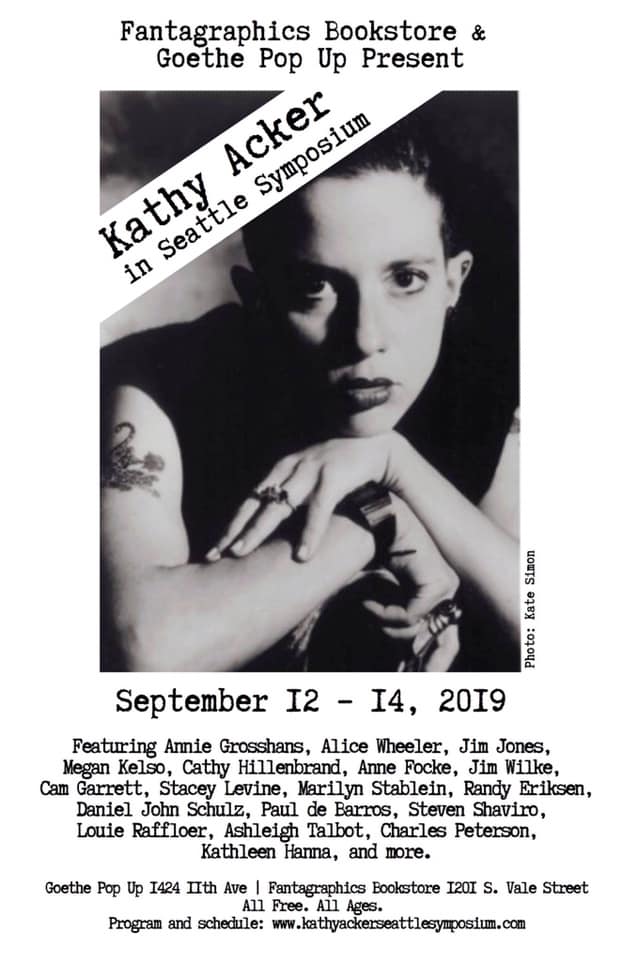Literary Event of the Week: Kathy Acker in Seattle Symposium

A confession: I've read the Beats and William S. Burroughs and all those literary touchstones, but they've never really spoken to me. They feel distant and chauvinistic and overly praised, like some classic rock band whose glory days came and went a full generation before I was born.
But when I hear people talk about what the Beats do for them — that sense of literary freedom, of bracing stylistic possibility, of taking down the norms and building something new — I absolutely understand that feeling. It's the feeling I had when I first read a book by Kathy Acker.
Acker doesn't enjoy anywhere near the name recognition of Kerouac and the rest, but she did for the 1980s what the Beats did for the 50s: she brought a subculture (in her case, punk rock) to mainstream literary culture, and she pissed off quite a few literary lions while she did it. Her books gleefully dissemble the idea of narrative with more than a little seething rage. They're angry and punky and singular documents — the kind of thing that whispers directly into your ear when you're a young reader looking for a flag to carry.
As I told you last week, Seattle tastemaker Larry Reid is helping to bring a symposium celebrating Acker's work to Seattle on Thursday, Friday, and Saturday of this week. It's all free. If you can't attend the day-long investigation of her work and legacy, you should at least try to attend one of the after-hours readings.
I had no idea until Reid reached out that Acker lived in Seattle at one of the most important moments of her career — just before her milestone work Blood and Guts in High School was published, and while she was working on my favorite of her books, Great Expectations. The symposium will explore Seattle's effect on Acker, and vice versa. Reid believes that the Riot Grrl movement took great inspiration from Acker, and Bikini Kill frontwoman Kathleen Hanna agrees. (Hanna will participate in a group reading at the symposium via Skype.)
Why hasn't Acker received the devotion that Burroughs did? Sexism plays a big part, of course, and it's harder to craft a cult of personality around an author from the 1980s, when there were so many countercultures erupting all over, than it was in the monocultural literary 1950s. But Acker wouldn't enjoy being loved the way Burroughs is, anyway: she'd demand that her readers kill their idols, and she'd laugh the whole time they tore her down. That's why she's the best.
Various locations and times, http://www.kathyackerseattlesymposium.com/schedule.htm